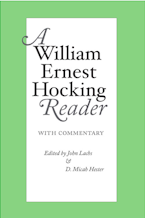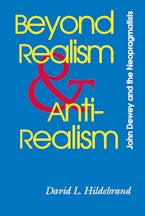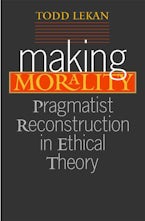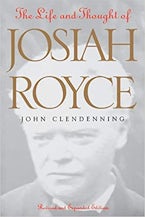- Home
- Dewey's Logical Theory
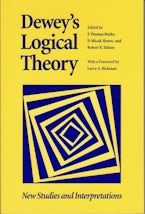
Dewey's Logical Theory
New Studies and Interpretations
Edited by F. Thomas Burke, D. Micah Hester and Robert B. Talisse
Despite the resurgence of interest in the philosophy of John Dewey, his work on logical theory has received relatively little attention. Ironically, Dewey's logic was his "first and last love." The essays in this collection pay tribute to that love by addressing Dewey's philosophy of logic, from his work at the beginning of the twentieth century to the culmination of his logical thought in the 1938 volume, Logic: The Theory of Inquiry. All the essays are original to this volume and are written by leading Dewey scholars. Ranging from discussions of propositional theory to logic's social and ethical implications, these essays clarify often misunderstood or misrepresented aspects of Dewey's work, while emphasizing the seminal role of logic to Dewey's philosophical endeavors.
This collection breaks new ground in its relevance to contemporary philosophy of logic and epistemology and pays special attention to applications in ethics and moral philosophy.
D. Micah Hester is assistant professor of biomedical ethics and humanities at the Mercer University School of Medicine. His books include Community As Healing and On James .
F. Thomas Burke is assistant professor of philosophy at the University of South Carolina.
Robert B. Talisse is assistant professor of philosophy at Vanderbilt University.
The material presented in this volume reflects a kind of sea-change in Dewey studies. It is not so much that these essays are uniformly positive or uncritical, for they are certainly not that. Their importance lies rather in the fact that serious scholarship on Dewey's logic, building on the solid advances won over the years by Thayer, Kennedy, Sleeper, Burke, and others, seems finally to have reached a critical mass. Perhaps even more important, when taken together these essays establish an important way-marker along a road that Dewey hoped his students would follow. They seek to push Dewey's ideas forward: to work out the consequences of his logic--his theory of inquiry--for a living philosophy.
--Larry A. Hickman, from the Foreword

